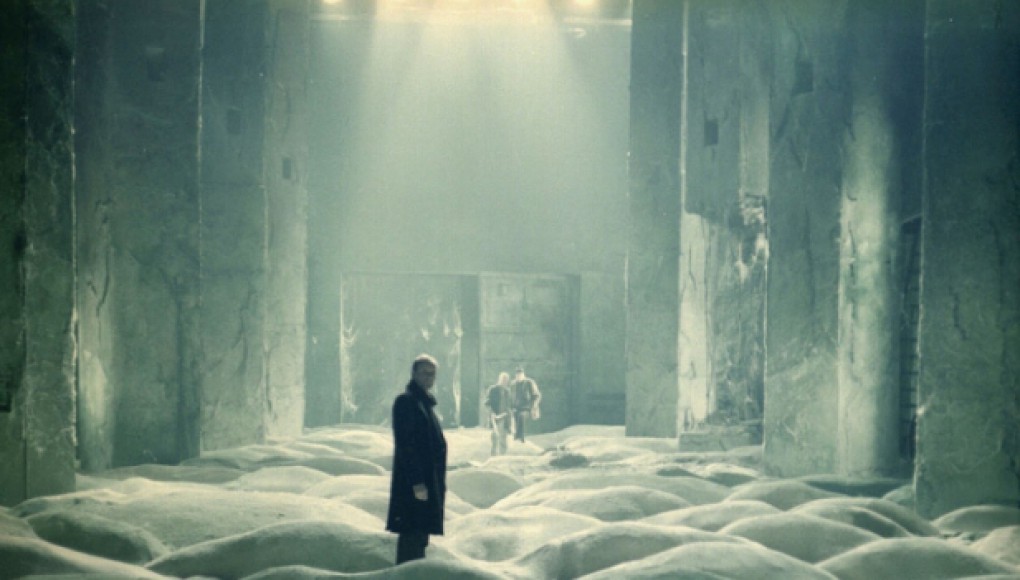Review written by Raul De Leon
The Death of Stalin (2018)
Did you know Stalin pissed himself when he died? I didn’t. But Ianucci and his fellow writers made sure to point that out to us with drolling gags over the dictator’s unconscious body. Is it insensitive? Well one could argue, but if political humor gets under your skin then this British farce reel isn’t for you. The Death of Stalin makes contemplative points on the Soviet’s transition away from Stalin’s reign of terror, with laughs the entire way through.
If you need a brush up on your history, I’ll give you a quick recap: Josef Stalin was the leader of the Soviet Union from the mid-1920’s, through World War II, and up until his death in 1953. Even though he and the Soviet Union deserve much credit for defeating the evil Nazis, Stalin is pretty much unanimously perceived as another Hitler; a malicious and powerful politician who we have no remorse for. So just like it’s okay to see Hitler thrashed by a close range machine-gun in [Title of movie removed due to Spoilers], it’s also okay to watch politicians comically fuss while standing over Stalin’s lifeless body and brain-exposed head.
Stalin’s in the mood for a late-night screening of a cowboy picture, so his Central Committee members watch alongside him while they fall asleep in their chairs. They don’t want to be there but what can they do? If they don’t watch the movie, they might be shot. If Stalin suspects them as betrayers, they might be shot. If the doctors diagnose Stalin with an illness, they might be shot. If the guards outside Stalin’s room enter when they hear him fall from his stroke, they might be shot. Everyone, everyone, lives in fear of their lives, and it’s hilarious.
After Stalin’s death, the Central Committee of seven nervously reorganize and push the Soviet narrative forward, but they don’t know what one another’s agendas are, nor where each other stands. Nobody wants to be singled out, so they nervously follow each other’s lead to keep themselves under the radar and out of sight of the crosshairs.
Malenkov (Tambor) becomes the new Premier and First Secretary, but he’s weak and completely depends on his comrades, comically contradicting himself to adhere to their say. Beria (Beale) is a brute, disguising himself as a savior to the Soviet public in order to save his skin and control the state. Khrushchev (Buscemi ) is the hope out of autocracy but is belittled by his comrades. Vasily Stalin (Rupert Friend) frantically tries to rule like his father, but he receives not even an ounce of respect from the lowest Soviet guard. It’s laughable how powerless he is compared to his authoritarian father.
Paranoia feeds the committee’s indecisiveness, hesitancy, and concealment of their true feelings. These are the people that are supposed to be ruling a nation and they’re completely out of whack. Just like Kubrick with Dr. Strangelove, Ianucci makes total fun of very serious politics.
One scene in particular sums up the screwy spectacle that is, The Death of Stalin: A team of soldiers seize a government building and execute one person after another, including workers and guards. At the end of the seize, the military vehicles roll out, and a soldier turns his pistol on his comrade (who looked to be orchestrating the seize in the first place), and fires at his head. It’s absurdist humor used to reflect an equally absurd governing body.
I found myself laughing out loud at the ridiculous circumstances, just like Adrian McLoughlin (Stalin) laughs out loud in a thick British accent before he croaks. Ianucci is more than aware of how ludicrous his picture is and equally aware of how ludicrous some horrendous political rule on our planet has been. So my advice is; don’t be offended like Russia (who banned the film in their country), and let the wisecracks roll.
If you liked The Death of Stalin, you might also like; Dr. Strangelove or: How I Learned to Stop Worrying and Love the Bomb (1964), Wag the Dog (1997), In the Loop (2009), The Dictator (2012).
Check out the rest of my reviews on my website: Rauloncinema.com




